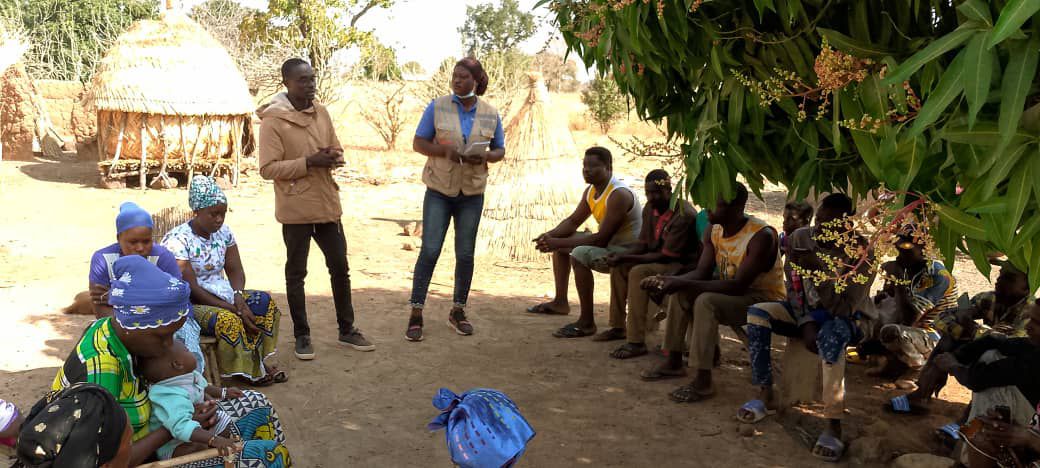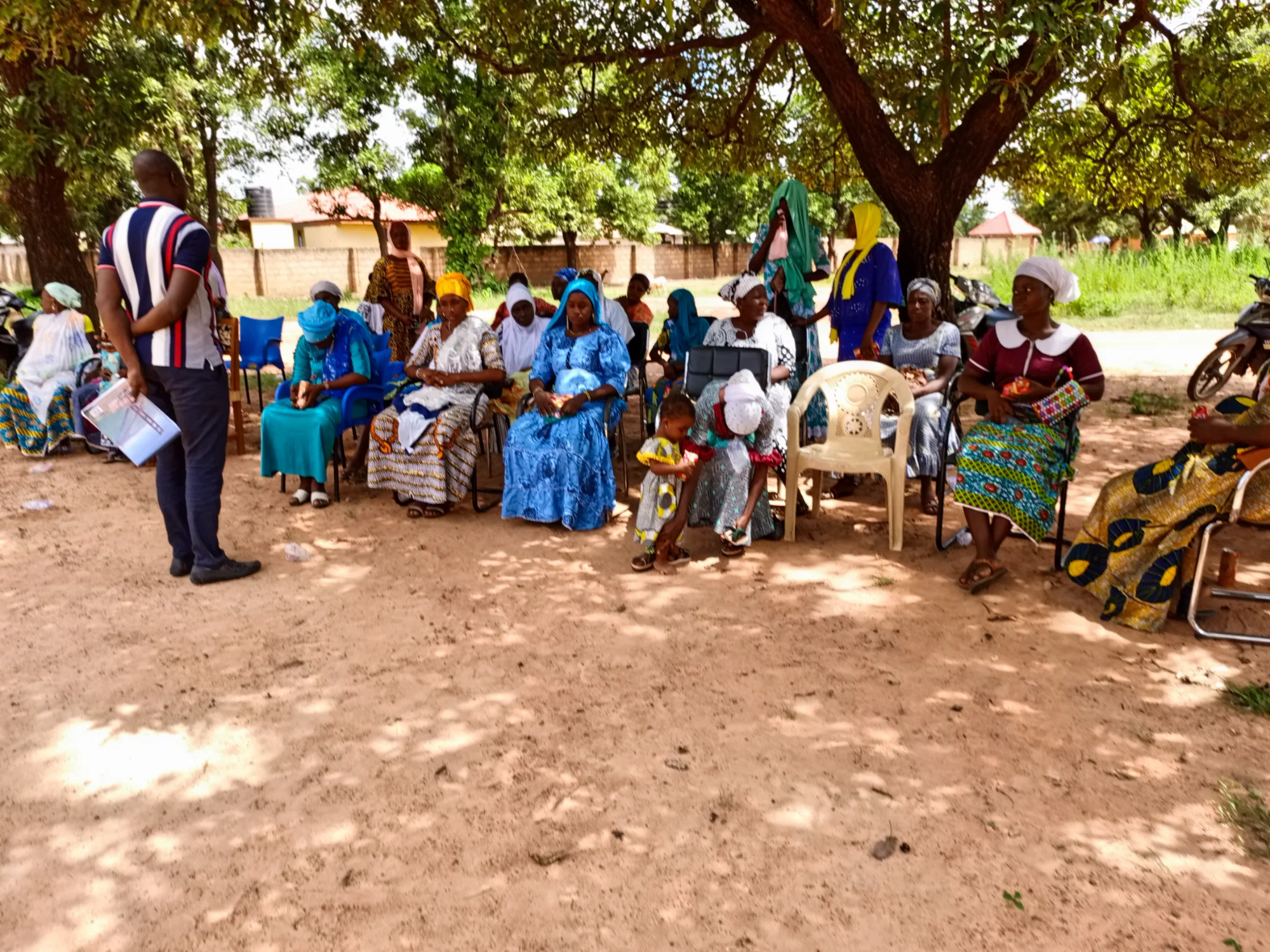Empowering Women Through Skills Training
Our latest women's empowerment workshop brought together 50 women from rural communities to learn marketable skills...
Read More →
Two years after USAID's Office of Transition Initiatives commissioned our groundbreaking research on Fulbe-non-Fulbe relations, we're witnessing remarkable changes across the Upper West Region. What started as a study to understand ethnic tensions has evolved into a movement of inclusion, respect, and peaceful coexistence.
Between June and August 2021, SAVEGhana conducted a comprehensive survey to understand the complex relationship between Fulbe and non-Fulbe ethnic groups in the Upper West Region. One of our most striking findings was something seemingly simple, yet profoundly impactful: the use of the word "Fulani" was a significant source of conflict.
"Fulbe is our name. Fulani is not. It is a name given to disrespect and stigmatize us. When you are called Fulani, it means you are worthless. We call ourselves Pul-lo for singular and Fulbe for plural."
— Fulbe Chief of Tumu Traditional Area
This revelation became the catalyst for change. Through a series of meetings and dialogues with District Assembly members, traditional leaders, and community influencers, we shared our research findings and recommendations. The response was extraordinary.
Our research confirmed that longstanding prejudice and exclusion of the Fulbe from decision-making and community activities, combined with persistent land competition, created destabilizing dynamics that could be exploited by violent extremist organizations. Armed with this evidence, we organized strategic dialogue sessions across the region.

The results have been transformative. Today, close to 80 percent of districts in the region, including the Sissala East District and Jirapa Municipality, have adopted the respectful term "Fulbe" instead of "Fulani." This isn't just a change in terminology—it's a fundamental shift in how communities view and treat their Fulbe members.
Perhaps the most significant outcome has been the inclusion of Fulbe traditional leaders in community council meetings for the first time in the region's history. These leaders now have a platform to speak on behalf of their communities and raise issues that affect them.
One powerful example comes from a Fulbe traditional leader in Tumu town who successfully advocated for reducing cattle rate taxes. The rates had been double those charged for other ethnic groups—a clear case of discrimination. After his advocacy in council meetings, the rates were cut in half, from $3.24 to $1.62 per cattle head.
"I advocated for reducing cattle rate taxes for the Fulbe, and I was heard; now we pay half of what we used to pay. This shows that when we are included in decision-making, positive change happens."
— Fulbe Traditional Leader, Tumu Town
Remarkably, this reduction actually increased the district's revenue. The Tumu Municipal Development Planning Officer explained: "The Fulbe now feel part of the community and are more willing to pay taxes. There is also no need to involve the security service to force them to pay."
The dialogue meetings led to eight of the eleven municipal districts in the Upper West Region adopting local roadmaps to better address Fulbe inclusion. These roadmaps have resulted in:

One of the most practical outcomes has been the establishment of mixed Fulbe and non-Fulbe mediation committees. These committees focus on resolving conflicts between herders and farmers—a dominant cause of violent clashes in the region.
As of July 2024, these committees have peacefully resolved over 75 cases in the Sissala East and Wa East districts alone. The presence of fair, representative mediation has significantly reduced the number of crop destruction cases and associated tensions.
"This year has so far been good; we have not had any confusion between the Fulbe and the farmers. The Fulbe are cautious with their cattle, and the farmers are also patient with the Fulbe."
— Assemblyman, Nator West Electoral Area
A particularly significant achievement was the removal of an immigration post in the community of Bujan. Located on a major road used by the Fulbe to travel to a weekly cattle market, the post had become a frequent source of conflict due to complaints of harassment by officials. Through dialogue and negotiation, traditional leaders successfully advocated for its removal.
The impact of our work extended beyond formal structures when Sissala FM, a local radio station, launched a program to educate listeners about conflict resolution, preventing violent extremism, and the culture and way of life of the Fulbe and other minority ethnic groups.
The program has been praised by both Fulbe and non-Fulbe communities for dispelling long-held stereotypes and fostering understanding. During a call-in segment, a non-Fulbe listener from Naabubelle community said:
"This program is very educational and will help reduce conflicts between farmers and herders over crop destruction."
— Non-Fulbe listener, Naabubelle community
Meanwhile, a Fulbe listener from Chinchang community added: "Now everyone knows that we, the Fulbe, have a voice, and our conflicts are best resolved through dialogue."
The transformation we've witnessed in the Upper West Region demonstrates the power of evidence-based advocacy, inclusive dialogue, and community ownership. What began as research has blossomed into a comprehensive movement for social cohesion and peaceful coexistence.
The Fulbe chief of Jirapa captured the essence of our achievement perfectly: "Integration and inclusion of Fulbe in decision-making and governance can promote trust and peaceful coexistence." This simple truth, now being lived out across the region, offers a model for addressing ethnic tensions and building community resilience against the influence of violent extremist organizations.
As we continue to monitor and support these locally-driven initiatives and policy shifts, we remain committed to ensuring that the progress made is sustained and expanded. The journey from exclusion to inclusion, from tension to trust, from conflict to cooperation is ongoing—but the path is now clear, and the future is bright.
Help us continue creating positive change in communities across Northern Ghana